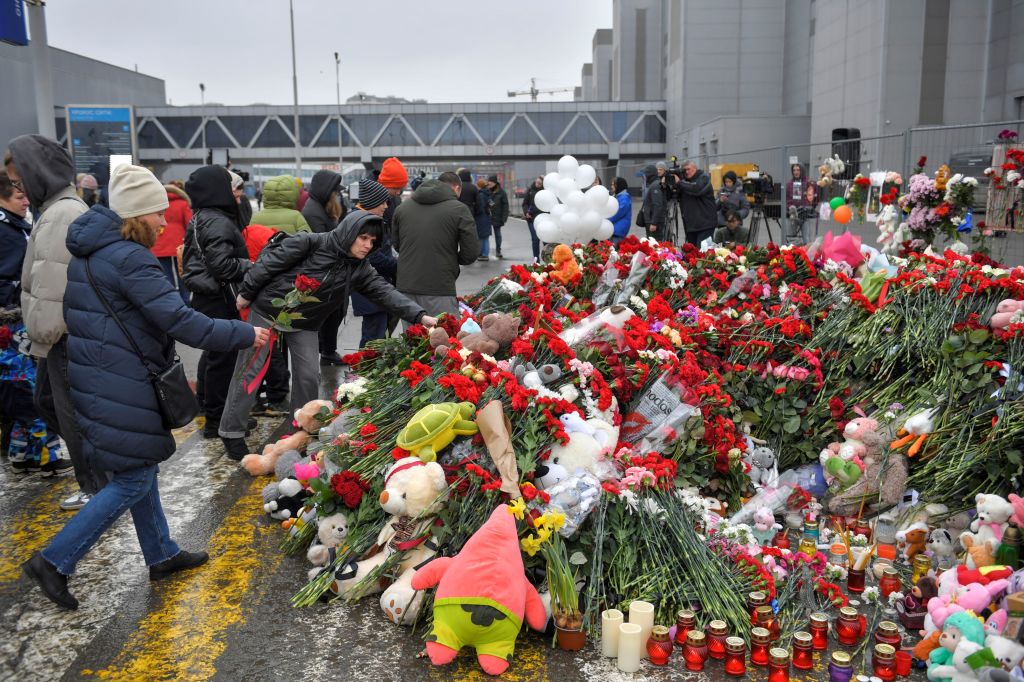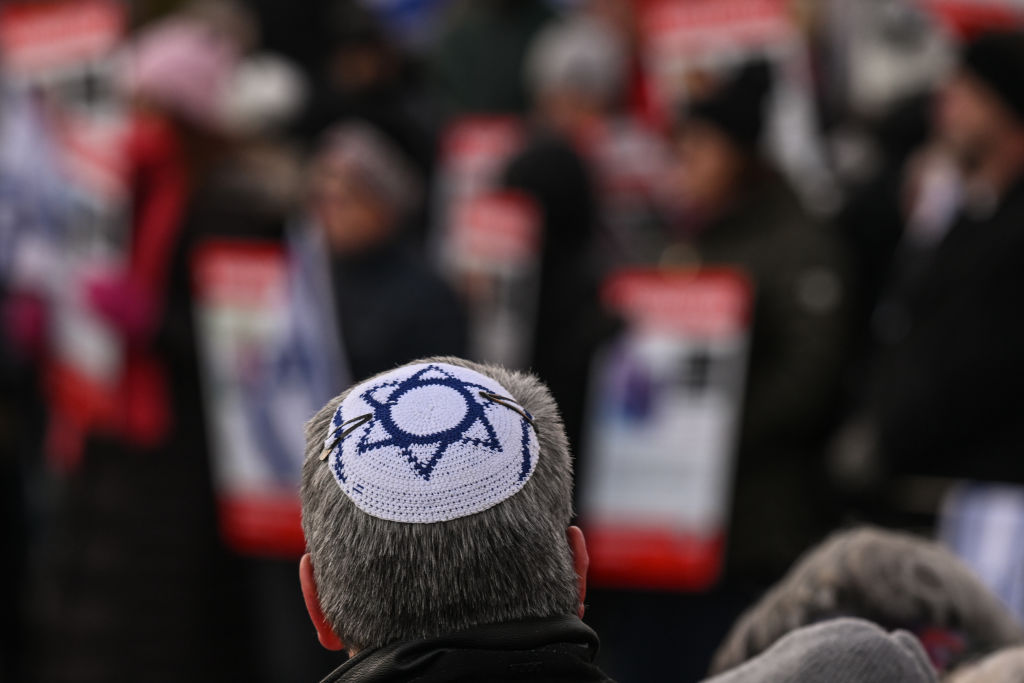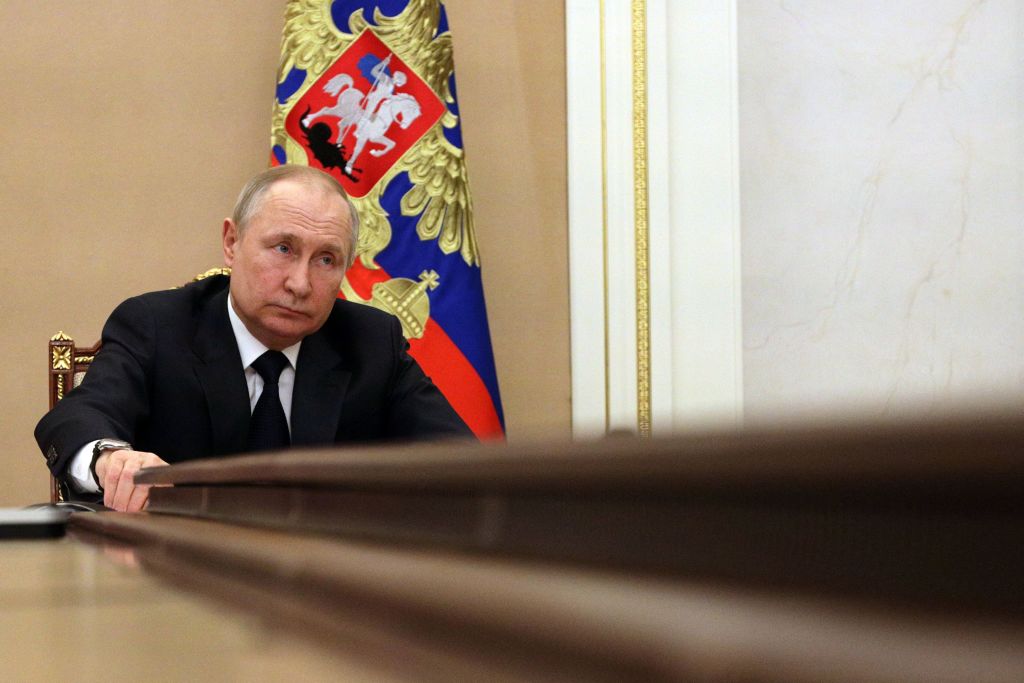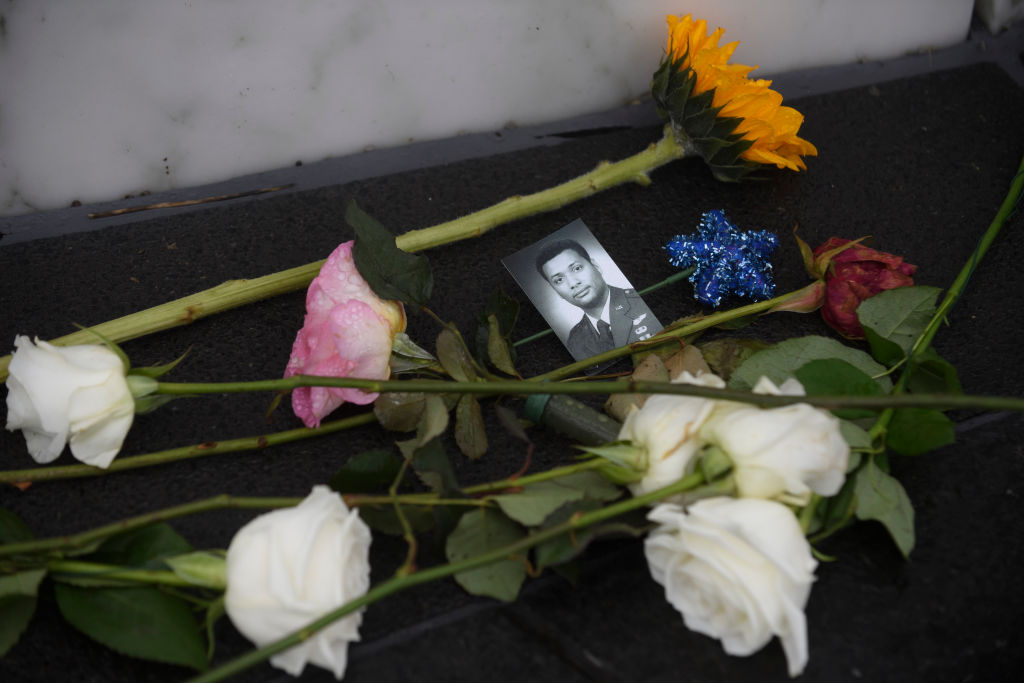Leftist Jews can’t believe that their kind intentions and good deeds are so unappreciated.
Responding to Terror

The increasing likelihood of an attack in the U.S. should make us consider how we will answer.
In 2001, the United States embarked on the War on Terror, rallying the world not just to fight terrorists but to replace autocratic and tribal societies with liberal democratic regimes, despite the lack of local interest. That approach now looks hopelessly wrongheaded.
Though Islamist terror groups still threaten the civilized world, geopolitical power players continue to use terrorist puppet regimes for strategic advantage, despite occasional “blowback.” Russia has been fighting ISIS in Syria since 2015 and, in 2017, prior to the recent ISIS-K raid on the Crocus Music Hall on the outskirts of Moscow, withstood a deadly attack by that group on the St. Petersburg Metro. Yet it’s been friendly with Hezbollah and Hamas terrorists and received a Hamas delegation following the October 7 attack on Israel. Its leadership appears to view NATO, not political Islam, as an existential threat.
Russia’s double standards when it comes to their proxies might be hypocritical, but they are also pragmatic and amoral. We can’t rationally expect that the people in charge can be shamed with accusations of hypocrisy into amending their ways. No one holds Russia to a high standard. If Russia is accused of damaging a church here or a hospital there, it rarely trends on social media or is covered in the news. Russian security forces must step up their game to make anyone pay attention.
When the suspects of the Crocus City Hall attack, where 140 civilians lost their lives, were apprehended, videos of their torture were immediately disseminated over social media. One suspect was seen kneeling and shivering with his clothes ripped off. Another was lying on the floor with wire attached to his genital areas. A uniformed man with a neo-Nazi black sun patch cut off a suspect’s ear and attempted to feed it to him. He later put the knife he used in torture on an online auction.
The suspects—all of them ethnic Tajiks—later appeared in the courtroom with signs of beatings. One of them had to be wheeled in and seemed barely conscious. They were said to had confessed to their crimes. Maybe they confessed to something extra—Putin later announced that the terror attack was connected to Ukraine.
Russia’s treatment of the terror suspects is jarring—and so was its execution of its own war on terror in Chechnya 20 years ago—but not much has been said in the West in protestation. The ongoing mass deportation of foreign laborers is barely noted, for example. Moreover, Russia showed its willingness to assert itself in Ukraine. Poised to win that war, they speak from a position of power. There is no point of lecturing Putin on extralegal treatment of terror suspects and international norms — he is not listening, and he has his country’s backing.
The West has its own Islamist problem and anticipates a major terror attack. The October 7 attack in Israel, though rooted in particular historical circumstances, combined with President Biden’s effective erasure of the U.S. border with Mexico, has raised the possibility of a large-scale attack in the U.S.
It’s worth noting that the U.S. and Israel use forms of torture on illegal combatants—those who fight out of uniform and are not subject to protection under the Geneva Convention. But both nations regulate what can be done and under what circumstances. We are not cutting off the ears of terror suspects.
But it’s also clear that Israel is doing something innovative in its war in Gaza. West Point’s urban warfare expert John Spencer noted that modern armies prefer to retain an element of surprise. Last fall, the Jewish state set a new standard for urban warfare. It warned of impeding action weeks ahead, dropping flyers and making phone calls and sending text messages notifying the population of safe escape routes. In anticipation of immediate action, Israel parachuted loudspeakers and allowed daily pauses for evacuations.
As a result, by Spencer’s estimation, the ratio of combat to civilian deaths in Gaza urban combat might be as low as 1:1—a remarkable achievement. It’s further remarkable because Israelis know very well that those are enemy civilians—support for Hamas in Gaza is sky high, Israeli hostages are being held in civilian homes, and celebrations of the 10/7 massacre were held on the streets.
Spencer speculates that the Israeli standard for prosecuting a war on terror, while on the surface humane, is nevertheless flawed because it makes it nearly impossible to finish the job quickly. It prolongs suffering and requires additional operations. Any nation that chooses to follow it will do it at its own peril. It is doubtful that Russia, which is now looking to take Kharkov, a town about the size of Gaza City, will care to evacuate 85 percent of the civilians prior to taking action or make courtesy calls to each cell phone.
We like to believe that people respond to kindness with kindness, but our failure to promote democracy in the Middle East should give us pause. At the end, all is fair in love and war. Russian bloody determination and willingness to make examples out of the wrongdoers might prove to be more effective than Israeli life-saving strategies.
The world where extrajudicial prosecutions of terror suspects may prove effective and become the norm is not the world George W. Bush imagined in 2001. But that’s why we need to give serious thought to what our response will look like when another mega terror attack strikes America.
The American Mind presents a range of perspectives. Views are writers’ own and do not necessarily represent those of The Claremont Institute.
The American Mind is a publication of the Claremont Institute, a non-profit 501(c)(3) organization, dedicated to restoring the principles of the American Founding to their rightful, preeminent authority in our national life. Interested in supporting our work? Gifts to the Claremont Institute are tax-deductible.
Nations have historically looked to usurp Israel’s place in the Divine plan.
America shouldn’t ask its daughters to fight its wars.
Time is a weapon of war.
America’s decline is not irreversible.
The two decades since the 9/11 attacks have revealed that the American spirit is not completely gone in the heartland.






